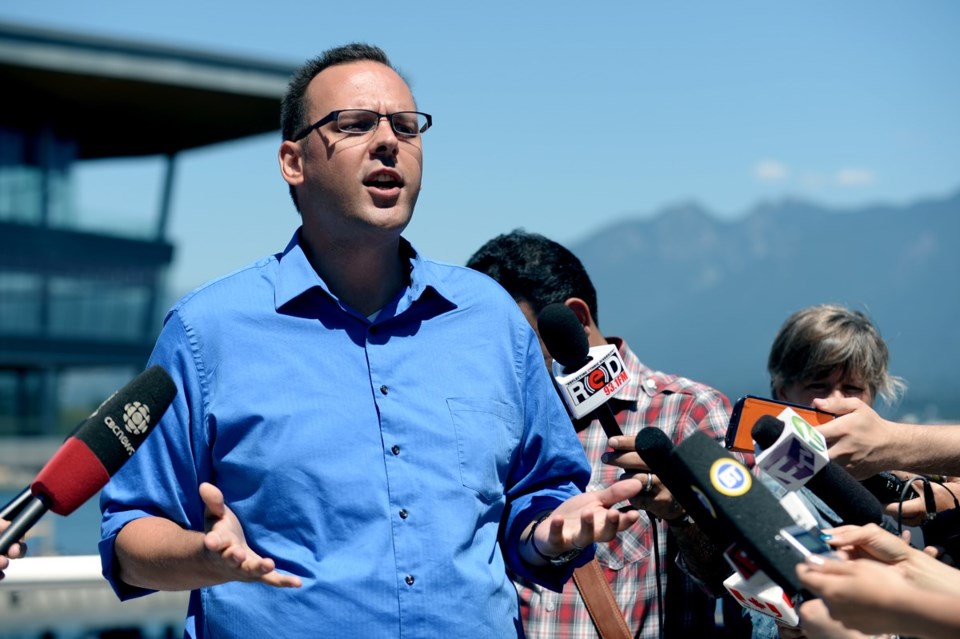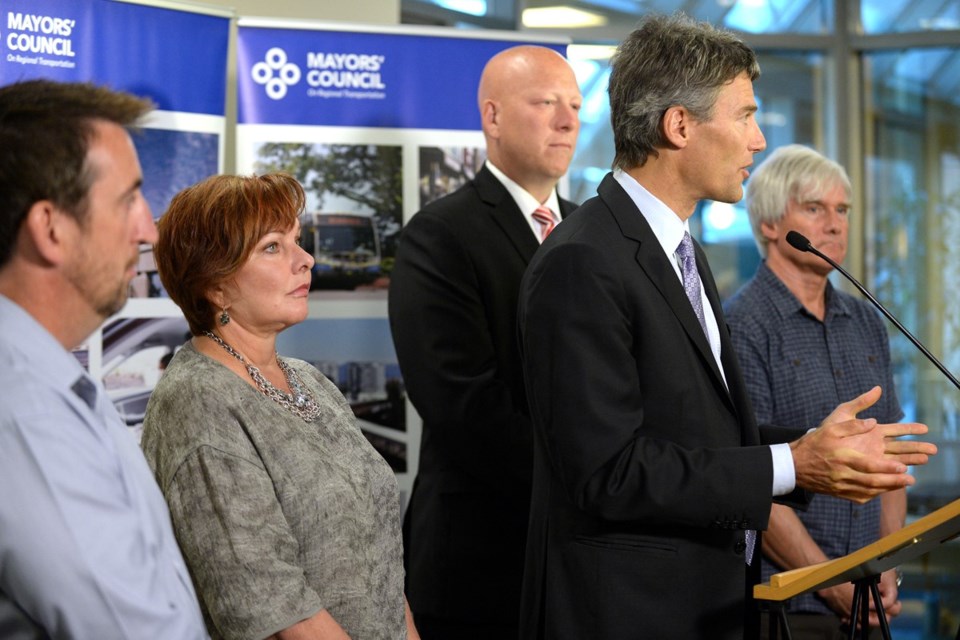Metro Vancouverites voted overwhelmingly against a 0.5 per cent tax hike to help pay for a 10-year, $7.5-billion transportation and transit plan that was designed to ease congestion.
Elections B.C. announced Thursday morning that 61.68 per cent voted No, while 38.32 per cent voted Yes.
The vote in Vancouver was exceptionally close — 50.81 per cent against and 49.19 per cent in favour.
Vancouver mayor Gregor Robertson said on funding there is no plan B at a Mayors’ Council press conference held shortly after the vote result was announced.
“The mayors have been unanimous in stating that property tax is not an option to fund the mayors’ plan. Going forward, we need an alternate solution from the government," he said. "It doesn't make sense to tax people on their homes more to pay for transportation. This investment should more directly be tied to transportation."
Robertson added that ultimately it's up to the province to decide how the funding gap is met.
“They need to empower the region with the tools to raise the funding to improve our transportation network,” he said. "Mayors have been frustrated for many years that the need for investment is not being met and it's ultimately up to the B.C. government to make any changes to the Translink government structure. TransLink is their creation, and the questions around accountability need to be addressed by the province and the other pieces around the funding gap. And we need the investment for transit. The money needs to come from somewhere."
Jordan Bateman of the Canadian Taxpayers Federation was the main spokesperson for the No side. He said: “the people have spoken.”

“[TransLink] is clearly an organization that is still in denial about what’s happened here today. The people have spoken. They want TransLink fixed. That is job one. Other things regarding funding increases and taxes and whatnot, those are all reasons why people voted no. But overarching, the narrative of this entire campaign has been TransLink mismanagement and for Doug Allen to stand over there and talk about how everything is hunky dory and this wasn’t a vote about TransLink… it almost boggles the mind how the management of TransLink has been so obstinate in going out in this campaign the same way they came in: pretending like everything is alright.”
Five municipalities voted against the tax hike with more than 70% of votes — City of Maple Ridge (No: 77.03%), Township of Langley (No: 74.97 %), City of Richmond (72.39 %), City of Langley (72.29 %), City of Pitt Meadows (72.16 %).
Only three municipalities voted Yes: Bowen Island (61.92 % Yes), Metro Vancouver Electoral Area "A" (58.57 % Yes), Village of Belcarra (52.15 % Yes).
Total ballots considered numbered 759,696, while 2,513 ballots were rejected.
More than 38,000 ballot packages were not considered because they didn't meet plebisicite requirements.
Just over 51 per cent of ballot packages (798,262) were returned. Registered voters in Metro Vancouver numbered 1,562,386.
The plebiscite asked Metro Vancouverites whether they were willing to approve a 0.5 per cent hike to the existing provincial sales tax to help pay for the transportation and transit plan the region’s mayors devised. The plan promised more buses, increased HandyDart and SeaBus service, upgrades to roads and cycling infrastructure, rapid transit in Surrey, a new Pattullo Bridge and a subway along the Broadway corridor.
The provincial government said a plebiscite was necessary because the mayors wanted a new funding tool to help pay for transit and transportation improvements.
A 0.5 per cent hike to the provincial sales tax would have translated to more than $200 million per year — about 35 cents per day for the average household — to help pay for the plan. The provincial and federal governments, which didn't commit to the plan, would have been required to pay the bulk of the funding for it to be fully implemented.
Jordan Bateman, of the Canadian Taxpayers’ Federation has been the main spokesperson for the No side, which argued the mayors’ plan could be funded with increased revenue each municipality receives as the region grows. An estimated one million new residents are expected to move into Metro Vancouver by 2040.
The Mayors’ Council reported June 12 that it spent $5,814,851 on the Yes campaign.
The Canadian Taxpayers’ Federation-run No TransLink Tax campaign said it spent just under $40,000.
The HST referendum in 2011 was the last mail-in only vote in the province. Voter turnout reached 52.7 per cent, with almost half of the returns sent in during the last two weeks of the voting period, Don Main, communications manager for Elections B.C., told the Courier in a previous interview.
— with files from Mike Howell, Bob Mackin and Elizabeth Lu



